News and Announcements
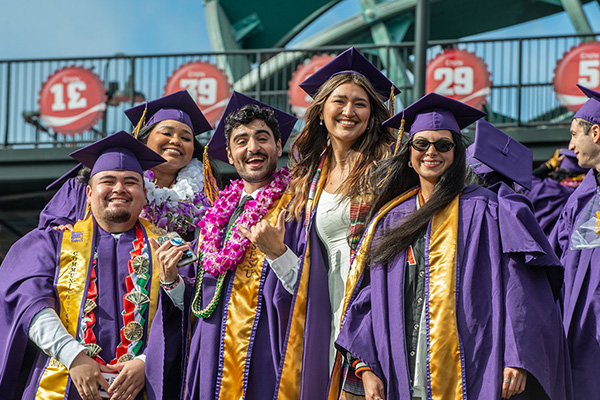
Class of 2025, save the date for San Francisco State University’s 124th Commencement, which will be Friday, May 23, 2025, at Oracle Park, home of the San Francisco Giants. This is the ninth year the downtown ballpark will host the more than 30,000 graduates, family members and friends anticipated for the celebration.
“I look forward to Commencement each year,” said San Francisco State President Lynn Mahoney. “I love celebrating the success of our students as they embark on their next journey. I stand proudly on the sidelines knowing we’ve prepared them to take on the problems of tomorrow.”
More information about the May 23 ceremony will be shared throughout the year as it becomes available. Keep checking the SFSU Commencement website for updates! Follow SFSU on social media and tag your Commencement posts #SFSU2025.
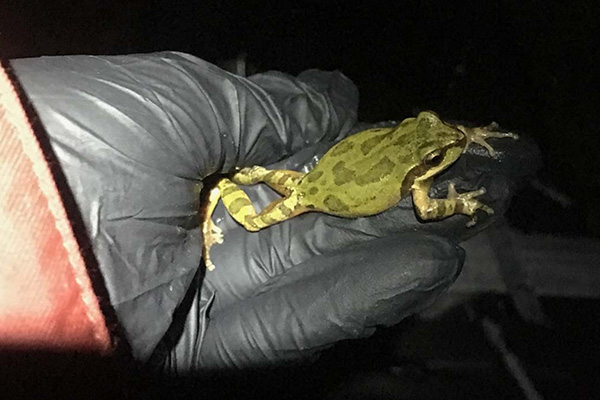
What noise does a frog make? Many of us would say “ribbit, ribbit.” Funnily enough, the Pacific tree frog (aka Pacific chorus frog) is the only species that really ribbits. (Listen to the variety of “peep,” “waaaaaaa,” “pa-tank,” and more sounds from other species.) Given how widespread Pacific tree frogs are in California, there’s a chance you’ve seen or heard their ribbits yourself.
During mating season, female frogs in this species choose males based on variations in their call — something scientists find intriguing from an evolutionary standpoint. “If all females have the same preference for type of call, then why haven’t all males evolved to have the exact call and be uniform?” said Julia Messersmith (M.S., ’21). “One theory is the Hamilton-Zuk hypothesis.”
The hypothesis connects male frog calls to their possible resistance to parasitism, a serious global problem facing amphibians. Messersmith studied this hypothesis for her master’s thesis at San Francisco State University and published her findings in Behavioral Ecology and Sociobiology. She and two other SFSU students co-authored the paper with their faculty advisers, SFSU Biology Professor and Department Chair Vance Vredenburg and Associate Professor Alejandro Vélez (now at the University of Tennessee, Knoxville).
The 40-year-old Hamilton-Zuk hypothesis posits that male frogs’ mating call traits (or plumage traits in birds) are related to their health, specifically their resistance to parasitism. Like other amphibians, Pacific tree frogs are in danger of contracting Batrachochytrium dendrobatidis (Bd), a fungal pathogen killing amphibians worldwide. If the Hamilton-Zuk hypothesis is right, it’s possible that female frogs are preferentially choosing the calls of “healthier” males. Although Bd infection is normally lethal, Pacific tree frogs sometimes fare better than other species — but this makes them effective carriers for disease who can spread the pathogen to other amphibians via water.
The team’s research showed that the level of infection did affect the male frog calls. Males with higher levels of infection had calls with faster pulse rates and therefore shorter duration; animals with lower levels of infection had slower pulse rates. However, female frogs did not necessarily show a preference for male frogs with lower levels of infection.
“I think the Hamilton-Zuk hypothesis holds up in some systems but not in others. I think it’s important to test it in every system you can because it’s not an end-all-be-all theory you can use for everything even though it’s still taught in disease ecology classes,” said co-author Kurt Lutz (B.S., ’17; M.S., ’20), now a Ph.D. student at Purdue University. The knowledge from this recent paper informed how he taught this hypothesis in a Purdue class.
“This is one of several hypotheses for female choice,” Messersmith explained. “It is something still discussed a lot. There are still a lot of questions to be answered, so any little piece of evidence we get is useful.”
For this project, Messersmith collaborated with Lutz and Esther Clemence Azar, both SFSU undergrads at the start of the project. Messersmith and Azar, both in Vélez’s lab, did field work while Lutz helped with the molecular work to detect and measure Bd infection. While Azar is still working on the project as a master’s student, Lutz moved on to study amphibians as a Ph.D. student.
Back in 2017, Azar was a City College of San Francisco student interested in veterinary school and college-level research. She applied to SFSU’s Bridges to Baccalaureate program after her brother and sister both had positive experiences doing research there. This was when she first met Vredenburg and began learning about Bd and amphibians. She eventually met Vélez and was excited to work in his lab.
“I decided that I didn’t want to be a veterinarian anymore. I really liked this science and asking a question and developing [a research project]. I found out that the [Student Enrichment Opportunities] Office scholarships continued throughout undergrad and grad school,” Azar explained, adding that these programs helped her along her SFSU journey and help give her flexibility to manage both personal and science life.
For Lutz, Messersmith’s project was one of several collaborations he worked on while at SFSU. But he says he wouldn’t have even been in the position to help if it wasn’t for Vredenburg giving him the chance to learn and become proficient in particular lab techniques. Lutz joined Vredenburg’s lab as an undergrad who was struggling and moving away from his goal of pursing a Ph.D. He joined the lab — and did his master’s degree — hoping to help course correct and develop the extensive research experience he needed to achieve his goals.
“[Vredenburg] had a lot of trust in me and a lot of the undergrads in his lab. He let us do things that maybe wouldn’t be done in other labs, but I think totally could be done by a lot of undergrads,” Lutz said. As he’s progressed in his own career, he says that level of trust in undergrads is not always the case elsewhere. As an SFSU graduate student, his research experience even led him to collaborate with H.T. Harvey & Associates — a consulting firm providing ecological support to public agencies, private entities and nonprofits — and get a job with Applied Technology and Science, another consulting firm in the area.
“SF State is such a beautiful place for a growing scientist. They really allow you to reach your maximum potential,” Azar said. “They are there for you and want you to succeed.”
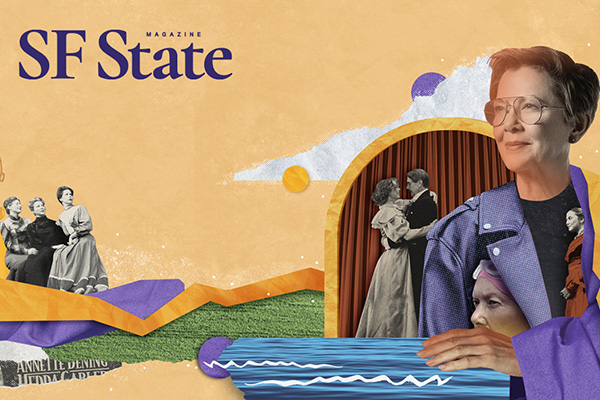
The fall/winter 2024 issue of SF State Magazine marks a momentous occasion: San Francisco State University’s 125th birthday. Now available online, this special issue delves into the rich history, influential alumni and groundbreaking innovations that have shaped the University into what it is today.
Headlining the issue is a captivating Q&A with Academy Award-nominated actress and SF State alumna Annette Bening (B.A., ’80). In this exclusive interview by SF State Magazine columnist Ben Fong-Torres (B.A., ’66), Bening reflects on her time at SF State, her career and the enduring influence of her alma mater.
A feature on the University’s beloved alligator mascot traces its evolution from quirky beginnings to its current status as a sassy symbol of Gator pride. Another powerful story explores how the 1968 student strike that led to the creation of SF State’s College of Ethnic Studies inspired another group of activists — those fighting for LGBTQ rights.
This celebratory issue also includes:
- “125 Surprising Facts About SF State”: A deep dive into little-known milestones and hidden treasures from the University’s storied history.
- A very personal “My SF State Story” essay by alumna and University archivist Meredith Eliassen (B.A., ’88).
- Updates on dozens of Gators using their SF State degrees to make a mark on the world.
Don’t miss this extraordinary tribute to 125 years of history, activism and pride. Check out the fall/winter issue of SF State Magazine now.
Illustration by Olga Khaletskaya
To help prepare the SFSU community for an ever-changing technology environment, Academic Technology, the Center for Excellence in Teaching and Learning and Information Technology Services collaborated to develop the Artificial Intelligence (AI) Literacy Education Program.
This comprehensive training program instills essential competencies for effective and responsible engagement with generative AI, both in personal and professional contexts. Core competencies of the program include the ability to understand, use, evaluate and ethically navigate generative AI to enhance human thought and work.
Participants who successfully complete all program requirements will receive a digital badge.
Program discontinuance proposal: Master of Science in Interdisciplinary Marine and Estuarine Science
Per Academic Senate Policy F19-177, the Educational Policies Committee must inform the campus community of the following discontinuance proposal two weeks before Senate action.
Discontinuance has been proposed for the Master of Science in Interdisciplinary Marine and Estuarine Science and will be reviewed in February.
To file a response, please email Claude Bartholomew at claude@sfsu.edu.
It’s that time of the year and it’s time to get your health and wellness on track. Join Kinesiology's Fit Plus program for winter and spring session. The program began Jan. 6.
Please email John Penacerrada at jpen@sfsu.edu for information or a one-day trial.
As the spring semester begins, the J.Paul Leonard Library encourages all instructors to submit a Course Reserves Request Form so students can be provided with required resources free of cost.
The Library’s Course Reserves program is in place to make the costs of course materials more manageable for students. Faculty may place requests for the Library to purchase a new book for the collection or relocate an already-owned book to the reserves shelf at the Main Book Checkout desk. This collection has shorter loan times to allow for more circulation among more students of materials required for courses.
Additionally, instructors may bring their own personal copies of course materials to the Library to be placed on reserve temporarily.
There is a one- to two-week turnaround time for physical book requests and a 72-hour turnaround for e-book requests, so please submit requests as soon as possible.
For questions, please contact Course Materials Coordinator Elliott Scheuer at escheuer@sfsu.edu or 415-338-3473.
Are you curious about your SFSU website traffic data? The Office of Strategic Marketing and Communications offers quick-access dashboards through Google Looker Studio, which provides real-time, customizable reporting tools and makes data-driven decisions to enhance web strategies.
Google Looker Studio is a tool that transforms raw data from Google Analytics into easy-to-understand reports. These reports provide insights that help website editors and contributors optimize their web content, track user engagement and improve overall website performance.
Benefits of Google Looker Studio:
- Real-time data updates
- Customizable reports tailored to your needs
- Simplified data presentation
- Scalable reporting as your web presence expands
To request access to your Looker Studio report, please fill out the request form.
For more information about Google Looker Studio, please email Digital Content Specialist Kevin Perez at kperez@sfsu.edu.
Are you interested in working on climate change and justice in your research, scholarship or creative activities? Through the Climate Justice Leaders Initiative, SF State’s Climate HQ awards mini grants that bring together researchers from different fields to address climate justice goals.
These one-time minigrants will seed and support interdisciplinary research, scholarship and creative activities. Three to six grants between $5,000 and $12,000 each will be awarded (award period is June 2025 – May 2026). Applications are sought from teams comprised of at least two people who specialize in different disciplines, including at least tenured/tenure-track faculty.
The minigrants aim to:
- support faculty members incorporating climate change/justice into their research, service and creative activities (RSCA) for the first time
- deepen their inquiries into climate change/justice in a new way
- facilitate connections among faculty engaged in climate RSCA across campus and in the community
Climate HQ supports efforts to mitigate climate change and to address climate impacts through the interdisciplinary minigrants. The Climate Justice Leaders Initiative aims to strengthen climate justice teaching, research and outreach at SF State.
For questions, please email Climate HQ faculty mini grants coordinator Carolina Prado at carolinaprado@sfsu.edu.
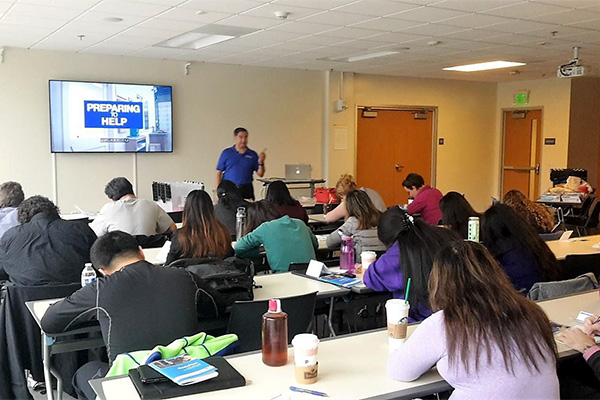
Environment, Health and Safety will host a First Aid, CPR, AED Certification and Recertification training on Wednesday, Jan. 22, in Library 121. Training courses will be split into two sessions of four hours.
To RSVP, please email grouxsr@sfsu.edu.
The 2025 Academic Senate University Retreat, “Moving Forward Together,” will be on Wednesday, Jan. 22, 9:30 a.m. – 4 p.m., in Annex I. This is a unique opportunity to share a day of collaborative inspiration and academic exchange with the SFSU community.
Watch your email for more information and a chance to RSVP and/or lead a session.
The food we eat, beyond nourishing our bodies, can provide us a path to connection with our ancestors and their traditional practices through time and space. Join the Sutro Library for “Let’s Eat! Connecting to Culture Through Food,” a free virtual talk on Wednesday, Jan. 22, at 6 p.m.
Sara Calvosa Olson (Karuk) will discuss her work with Native California foodways and their relationship to culture, kinship and land. She is a food writer and author living on Huiman Coast Miwok land. She is the author of “Chími Nu’am: Native California Foodways for the Contemporary Kitchen” (Heyday). Her work dwells at the intersection of storytelling, Indigenous food systems, security, sovereignty, reconnection and recipe development. By using both culturally sound and updated techniques honoring traditional plants and animals, her cooking inspires a new look at the oldest foods in California.
Please register for this event via the California State Library website.
The University Budget Committee (UBC) invites campus employees to attend its next meeting on Thursday, Jan. 23, at 11 a.m. via Zoom. This is a one-hour, single-topic meeting.
Please RSVP via email to ubc@sfsu.edu.
UBC members represent staff, faculty, students and administrators. Please visit the UBC page to access slideshows and minutes from past meetings or request the recording from a recent meeting.
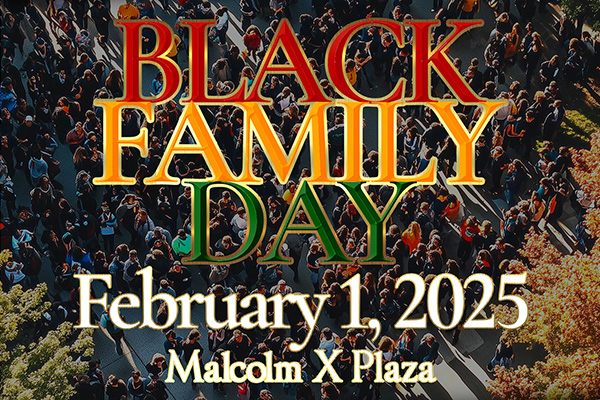
Soul of SF State presents Black Family Day on Saturday, Feb. 1, 9 a.m. – 5 p.m., at the Cesar Chavez Student Center and on Malcolm X Plaza, unifying Black students with Black alumni and community resources. Admission is free and open to the campus community.
Black Family Day started in 1997 at SFSU under the guidance of Vice President of Student Affairs Penny Saffold and in partnership with the Black Student Union, as part of programming for Black graduation and retention of Black Students. The University has not held a Black Family Day since 2014.
“Rebuilding after a global pandemic is hard, and having Black Family Day at SFSU will assist in building a stronger community for Black people by Black people with Black people. Rebuild and reimagine!” said event organizer Shanice Robinson-Blacknell, a lecturer in Africana Studies and Counseling.
To attend Black Family Day, please reserve free tickets via Eventbrite. For a resource table at the event, please complete the registration form via Jotform.
Join the Office of Emergency Services on Wednesday, Feb. 19, 10 a.m. – noon, for a “Stop the Bleed” training. Participants will learn concepts and techniques that can be applied in many life situations to help control bleeding after trauma and potentially help save a life.
The more people who know how to control bleeding in an injured patient, the greater the chances of surviving that injury. You can help save a life by knowing how to stop bleeding if someone, including yourself, is injured.
Please visit the Office of Emergency Services website to register for this event.
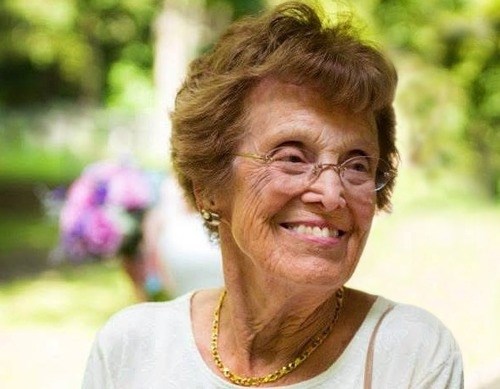
Former faculty member Patricia Miller Kennison passed away in her San Mateo home on Dec. 22 at age 101.
Born Aug. 14, 1923, in Milwaukee, Wisconsin, to Elsie Deane and Karl F. Miller, she spent her formative years exploring and swimming along the shores of Lake Michigan with her extended family, and singing around town with choral groups directed by her mother.
Miller Kennison school years coincided with the Great Depression. During those times strong family bonds and lasting friendships were formed, along with a guiding set of values based on helping others, living simply, revering nature, and contributing to society — all with a positive attitude.
Her college years corresponded with America’s involvement in WWII. On at least one summer break she worked in the Milwaukee Ordnance Plant, doing her part for the war effort. She liked to point out that the war ended on her 22nd birthday.
She attended Milwaukee State Teachers College (now University of Wisconsin, Milwaukee). It was here that she met a group of fun-loving sorority sisters who remained close friends for the rest of their lives. “The Kangaroos,” as they called themselves, scattered around the country and world, but never lost touch — coming together over the years for epic week-long “Kanga-reunions.”
Miller Kennison graduated from college in 1945, eager for her adult life to begin. At that time California, with its fast-growing population, needed teachers. Ever the adventurer, she applied to and was welcomed, sight unseen, by the Long Beach Unified School District. Traveling across country by train with a school chum, she found an apartment, a community and a career in public education. She taught kindergarten in Long Beach for three years, then decided to move north to the Bay Area. There, she taught at Mills College in a demonstration kindergarten program, and through contacts at Mills, got a teaching position in Oakland. Later she landed a job at San Francisco State’s Frederic Burk demonstration school, where she taught for about five years.
In 1949, while living in Oakland, she attended a Valentine’s Day social and met the love of her life and favorite dance and tennis partner, George H. Kennison. They were wed June 30, 1950, and began their married life in San Francisco. Throughout the next 58 years they shared a passion for the arts, nature, travel and laughter, all the while making friends and maintaining and nourishing those relationships.
In 1954 she completed her master’s degree at San Francisco State and had the first of three children. The young family soon moved to a nearby coastal town that would, in a few years, become the city of Pacifica, where new houses and schools were being built in a hurry. Again, Miller Kennison came to the rescue of a growing community that was in dire need of teachers, introducing herself and quickly being hired as a kindergarten teacher. She taught at several different schools in Pacifica’s Laguna Salada School District (now Pacifica School District). In the mid-1960s she was tapped to be a curriculum consultant, later the coordinator of specially funded programs and then director of pupil personnel. During her 34 years with the district, she also served as a school principal and finished her career as assistant superintendent, retiring in 1989.
Miller Kennison’s additional educational endeavors included co-founding and serving as the first president of Pacifica Co-operative Nursery School, teaching graduate Education classes at SF State and her membership in many professional organizations, including being a charter member of the Pacifica branch of the American Assocation of University Women, for which she served as president multiple times, and being a decadeslong member of Alpha Delta Kappa, a professional sorority for educators. She was widely respected as a teacher, administrator, mentor and friend to so many during her working years. After retirement she helped organize luncheons for retired teachers and staff and enjoyed projects and cultural outings with her retired colleagues.
Miller Kennison is survived by her three children: Merideane (Dave Volper) of Anchorage, Alaska; Karl (Karla Kennison) of Spring Creek, Nevada; and Bradley (Stephanie Ortega-Kennison) of San Rafael; as well as her seven grandchildren: Kaley, Garren (Hannah), Marielle (Conor), Ruth (Vincent), Heather (Patrick), Alexander (Rachel) and Sierra. Having added three more great-grandchildren in 2024, she is survived by a total of eight great-grandchildren: Marigold, Jules, Hayden, Carson, Finnegan, Jameson, Clara and Raelynn. Miller Kennison was predeceased by her husband, George Kennison, her sisters, Meredythe and Dorothy, and so many others that were dear to her.
The family is truly grateful for the tender attention she received from her caregivers in her final years (Laura, Cindy, Maryann, Merly, Alexis), and the support provided by her loving friends and neighbors.
A celebration of life is tentatively planned for June 7, at Hope Lutheran Church in San Mateo. In lieu of flowers, memorial donations may be made to the American Macular Degeneration Foundation, San Francisco Ballet, San Francisco Symphony, Environmental Defense Fund, World Wildlife Fund or The Nature Conservancy.
SF State Spotlight
SF State is included in a listicle of “20 American colleges where the cities make campus life even better,” published by Ultimate Travel Advice and MSN on Jan. 9.
“The city’s innovative spirit and rich history create a dynamic environment for learning, allowing students to engage with a wide range of perspectives and experiences,” the article stated.
Family, Interiors, Nutrition and Apparel Lecturer Rachel E. Scherr led a team of researchers through a situational analysis investigating mitigating factors that will impact nutrition education.
This team, comprising SF State alumni and students, among others, identified themes regarding nutrition education through reviewing literature and popular press and stakeholder interviews. The paper, “California Public Education Situational Analysis: Opportunities to Expand Nutrition Education,” is published in the most recent issue of the Journal of Trauma-Informed Community Health, Nutrition and Physical Activity.
Nutrition and Dietetics Associate Professor Gretchen George and alumna Melanie Alexander recently published a study titled “Accessible Nutrition Education for the Food Insecure College Student” in the Journal of Family and Consumer Science.
This pilot study evaluated a four-week food pantry-based nutrition education series aimed at improving food literacy and skills among food-insecure college students. Sixty students participated, randomized into three groups, each receiving varying levels of engagement with the same content. The study found significant improvements in food skills in the cooking demonstration and cooking class groups, compared to the handout-only group, as measured by a pre- and post-survey using the Food Skills Questionnaire.
Supported by a $15,000 CSU Basic Needs 2019 mini-grant, this research highlights the effectiveness of brief and engaging nutrition interventions for improving food literacy and skills in food-insecure students.
George and Alexander offer special thanks to undergraduate research assistants Margaret Taylor, Yahaira Nicole Turcios, Corin Iliana Luckhardt and Jamie Rae Saranghilo, “whose contributions were integral to the success of this work.”

For two consecutive years, studies by Africana Studies/Social Work Lecturer Shanice Robinson-Blacknell and Counseling Lecturer Lauren Sneed have been accepted to the American Educational Research Association. They are excited to team up to present at the 2025 conference.
These studies aimed to highlight the successful exits of Black boys and men from the “School-to-Prison Pipeline,” addressing literature gaps and challenging the narrative of inescapability. Robinson-Blacknell will introduce the Black urban storytelling model that she created while writing her dissertation, drawing inspiration from critical race theory and Tupac Shakur’s “Thuglife” philosophy. The interconnectedness of these studies centers educational journeys, in an authentic voice, and provides reimagined approaches to researching the carceral state. The intersectionality of these studies, rooted in strength-based approaches, highlights the successful transition of African Americans and the impact of incarceration on Black families.
Robinson-Blacknell and Sneed are cross-cohort sisters in SFSU’s doctoral program in Educational Leadership, working together to support transformative and culturally responsive change through tangible steps to inform educators, leaders, activists and policy writers about educational experiences of the carceral state. Robinson-Blacknell completed the doctoral program in fall 2023 and walked the stage with her cohort in spring 2024. Sneed will graduate this spring.
Thanks to a grant from the College of Liberal & Creative Arts and the support of the Broadcast and Electronic Communication Arts Department, Professor Jeff Jacoby continues to produce and host “The Traveling Radio Show,” a program about places and the people who live and work there.
The latest series of shows features CSU campuses around the state. During a recent visit to CSU Stanislaus, student newspaper The Signal interviewed Jacoby.
Completed episodes include CSU Monterey Bay, Sonoma State and Sacramento State. New episodes in postproduction include SF State, CSU Dominguez Hills and CSU Stanislaus, with several more to come.
Journalism Professor Cristina Azocar and Apparel Design and Merchandising Associate Professor Ivana Markova contributed a chapter to “Matoaka/Pocahontas/Rebecca: Her Atlantic Identities and Afterlives” (University of Virginia Press), edited by Kathryn Gray and Amy Morris. This new interdisciplinary collection combines innovative archival research with studies of image-making and reflections on the legacy of Matoaka/Pocahontas for Indigenous survivance today.
The British Library Eccles sponsors an online panel discussion and Q&A about the life and legacy of Matoaka/Pocahontas on Tuesday, Feb. 4, 9 – 10 a.m. Coll Thrush will chair the event. Please register via Zoom.
Recreation, Parks, Tourism and Holistic Health Professor Erik Peper gave the invited webinar, “What I have learned sitting at the foot of the masters and observing healers that can be used in healing,” to the Therapeutic Touch International Association on Dec. 14.